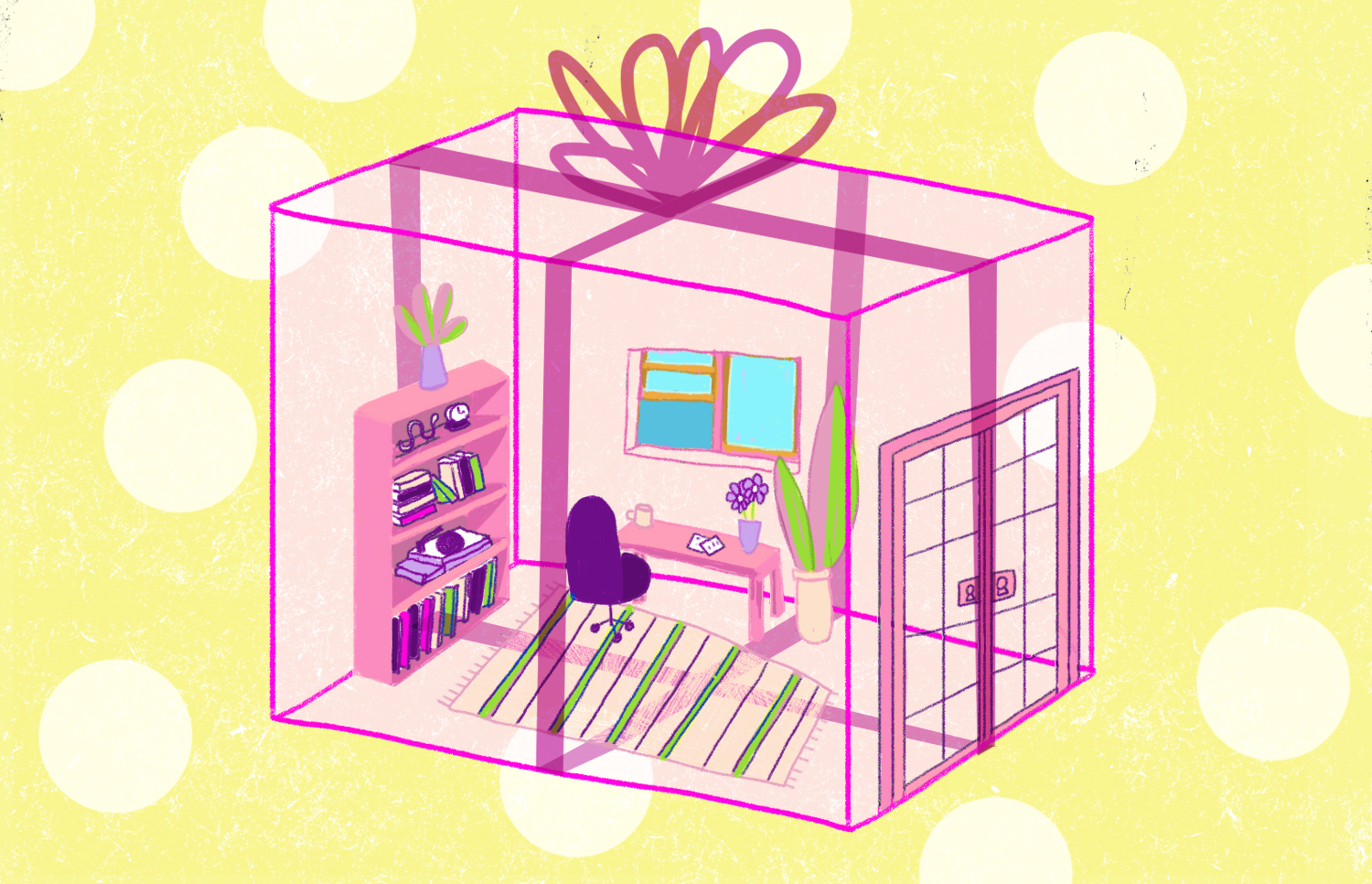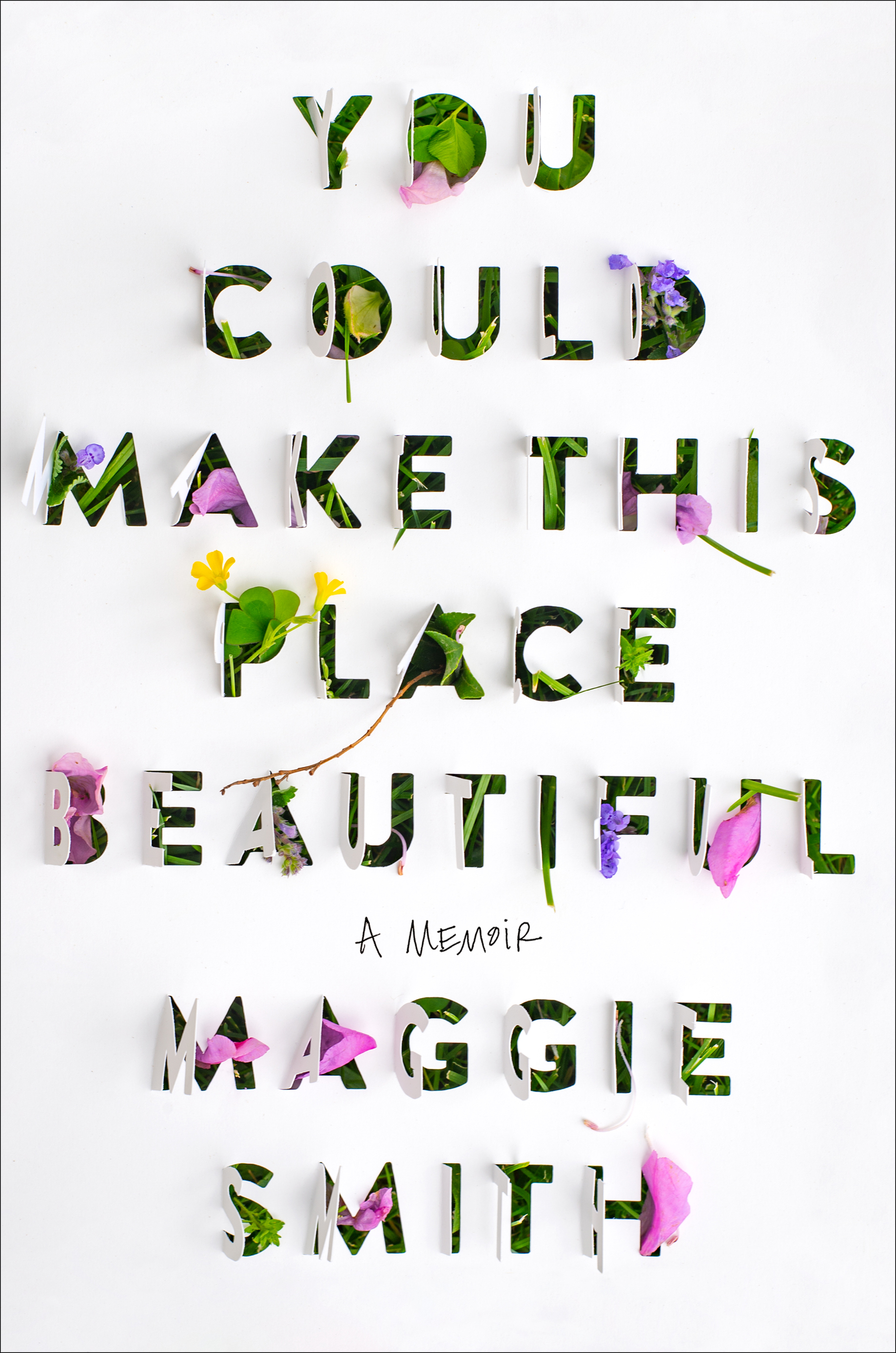
When my marriage of 13 years ended and my husband moved out, I reclaimed the house, room by room. Exorcism by design. I changed what I could afford to change, turning the dial up on the color: a yellow sectional couch; a pink dresser in the entryway, which holds our hats, gloves, and scarves (winter in Ohio begins in November and lasts into April); high-gloss yellow cabinets in the dining room.
My house was no longer haunted by the specter of a dead marriage; it felt vibrant, irreverent, alive.
Before long, I eyed the small room wrapped in windows at the front of the house. For years this bright space had been my children’s playroom. Parents know: kids may be small, but their collective stuff is enormous. We’d needed a place for the bins of toys and stuffed animals, the wooden kitchen set, the plastic grocery cart filled with plastic food, the dollhouse, the stacks of board games and puzzles, the picture books—and this “bonus room,” as the real estate agent had called it, was perfect.
After the divorce, though, I had an idea. I was going to have a room of my own.
Read More: Why I Stayed in a Marriage That Was Making Me Miserable
More from TIME
Almost 100 years ago, around the time my house was built, Virginia Woolf laid bare the material difficulties women writers face in “A Room of One’s Own.” As the title suggests, Woolf believed women writers needed both money and dedicated space. She wasn’t—and isn’t—wrong. If the laundry gets a room, and if even the mud gets a room, certainly the writing gets a room.
I realized, reclaiming this room in my home, creating a space for my work, that it’s more than practical. It’s symbolic. I was honoring my creative work by giving it dedicated space. I was also showing my son and daughter, 7 and 11 at that time, that their mother’s work is real, that it matters, that it has dignity.
They helped me clean out the playroom turned writing room. And no, they didn’t begrudge me the space. They’d outgrown the larger toys at that point, most of which had been passed down to younger cousins, and with some culling, the rest fit elsewhere. We moved their stuffed animals and books into their bedrooms, art supplies and puzzles to the basement, and games into one of the yellow cabinets.
Once I had a blank canvas to work with, I bought a desk and a comfortable desk chair, bookcases for my poetry books, a low shelf for my record player and records. Finally I dragged the glass-paned French doors up from the basement, where they’d been stored for 10 years. When we’d moved in, our daughter had just turned one, so we’d removed the doors on the playroom so her little dimpled fingers wouldn’t be pinched in the hinges. Without toddlers in the house, I could hang them again. I wiped them down, repainted them, and stood back to admire my handiwork.
My writing room is filled with things that bring me joy: cards from my kids, tiny clay animals my son has made for me, a couple of my daughter’s paintings, poetry broadsides and band posters, a bright turquoise telephone. When I’m at my desk, the French doors closed, my kids know I’m working.
I still write wherever and whenever I can. I write in coffee shops, where the background noise—the hiss of the espresso machines, the friendly chatter between baristas and customers—somehow allows me to focus. I’ve been caught scribbling at my son’s soccer practice or in the waiting room at the doctor or dentist. I’ve taken my notebook to the swimming pool, the beach, the skate park.
Read More: The Hazards of Searching for ‘Marriage Material’
But if I’m at home, I’m in my writing room. It’s where I’ll almost certainly be when you read this sentence. It’s a room of my own, and it’s as important to me in theory as it is in practice.
I can imagine other women in other houses needing space of their own for other reasons: playing a musical instrument, painting, crafting, podcasting, woodworking, gardening. Whatever we do that fulfills us, that lights us up, that gives us a sense of purpose—certainly this is more worthy of space than dirty laundry and muddy boots.
Maggie Smith is the author of You Could Make This Place Beautiful (OneSignal, an imprint of Atria and Simon and Schuster); © Maggie Smith

More Must-Reads from TIME
- Introducing the 2024 TIME100 Next
- The Reinvention of J.D. Vance
- How to Survive Election Season Without Losing Your Mind
- Welcome to the Golden Age of Scams
- Did the Pandemic Break Our Brains?
- The Many Lives of Jack Antonoff
- 33 True Crime Documentaries That Shaped the Genre
- Why Gut Health Issues Are More Common in Women
Contact us at letters@time.com